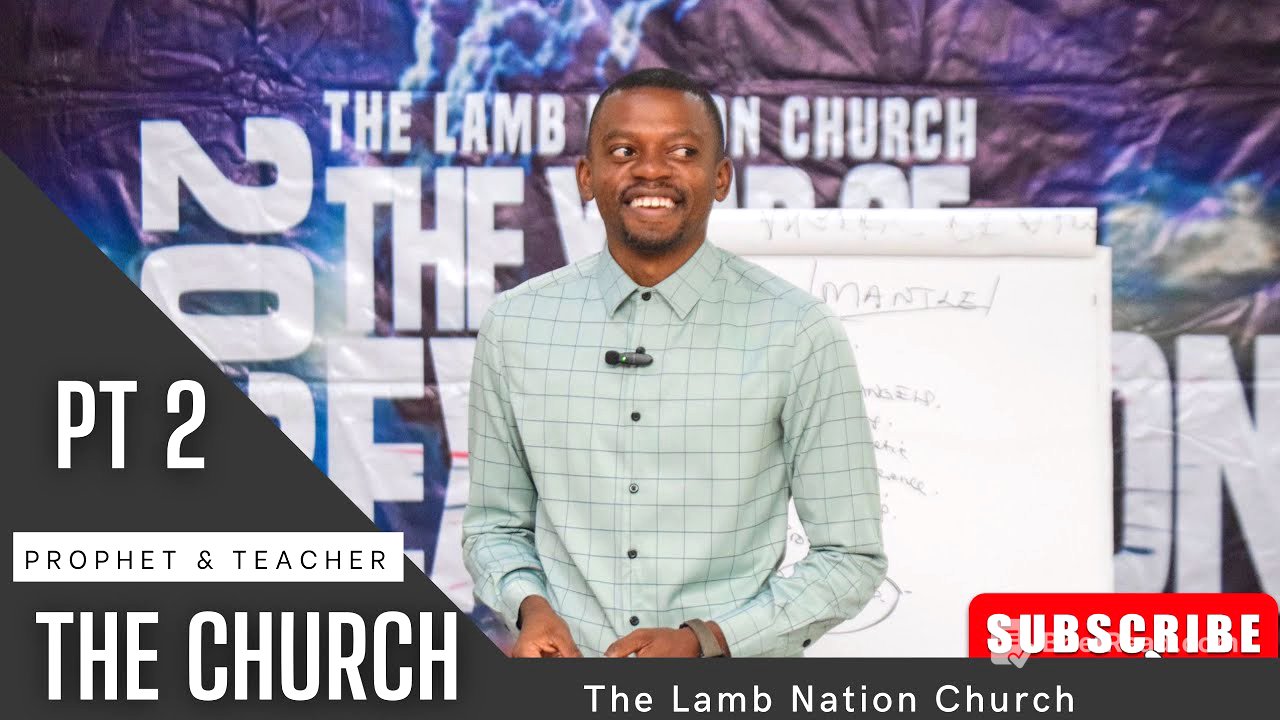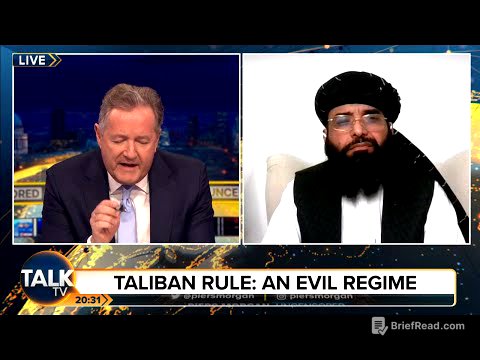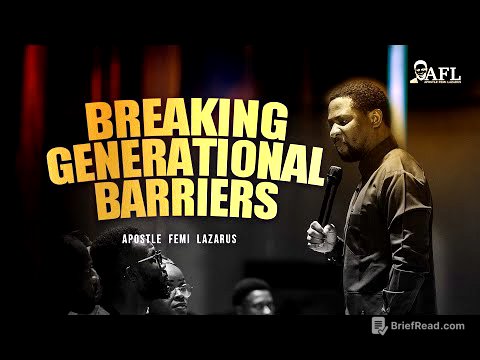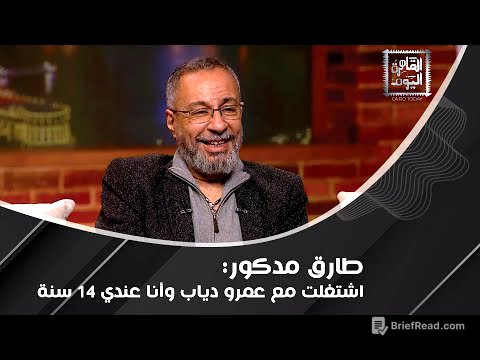TLDR;
This sermon explores the concept of being a witness for Christ, breaking it down into legal, historical, and ethical senses. It also examines the role of the Holy Spirit, the importance of separating from worldliness, and the significance of understanding one's identity in Christ. The sermon further discusses the angelic realm, how to access angels through focus and consecration, and corrects misconceptions about the prophetic ministry, highlighting the importance of discernment and avoiding judgment. Finally, it delves into the birth of the church, the roles of the disciples, and the often-overlooked contributions of figures like Luke and Mark.
- Explores three types of witnesses: legal, historical, and ethical.
- Emphasises the role of the Holy Spirit and separation from worldliness.
- Discusses accessing the angelic realm through focus and consecration.
- Corrects misconceptions about the prophetic ministry and the importance of discernment.
- Highlights the significance of understanding the roles of various figures in the early church.
Introduction: Power, Witnesses, and the Holy Ghost [0:00]
The sermon begins by recapping previous discussions on the Holy Ghost, which brings power (Dunamis) and enables believers to be witnesses. It highlights that this witness is to be spread from Jerusalem to the uttermost parts of the earth, transcending tribal divisions. The speaker introduces the three types of witnesses: legal, historical, and ethical, which will be explored in detail.
Three Kinds of Witnesses: Legal, Historical, and Ethical [1:29]
The speaker breaks down the concept of being a witness into three categories. A witness in the legal sense is someone who was present when an event occurred, which applies directly to the disciples who saw Jesus. A witness in the historical sense is a spectator who has seen God working, evidenced by miracles and the continued functionality of Jesus's power. Finally, a witness in the ethical sense is a martyr, someone who dies for their beliefs, demonstrating ultimate faith.
The Historical Witness: Miracles and the Resurrection [4:47]
The discussion centres on the importance of miracles, prophecy, and deliverance as infallible proofs of Jesus's resurrection. Removing these elements would suggest that Jesus is no longer alive and active. Miracles serve to point people towards the resurrected Lord and provide tangible evidence of God's power, reinforcing faith, especially during difficult times. Attending church and witnessing testimonies of others is crucial for maintaining faith and recognising Jesus's continued work.
The Ethical Witness: Martyrdom and Worldliness [10:41]
The ethical witness is described as someone who dies for their message, following Christ's example to the point of death. This level of commitment is not for immature Christians but for those focused on heavenly matters. The speaker then shifts to discussing worldliness, cautioning against being overly involved in worldly trends and achievements, which can hinder spiritual growth and readiness for the rapture.
Worldliness and True Beauty [16:19]
The speaker addresses the topic of worldliness, particularly concerning makeup and outward appearances. True beauty, according to the sermon, is internal ("beauty-full") and not dependent on external enhancements. The speaker clarifies that engaging in worldly things doesn't necessarily mean missing the rapture, but excessive involvement indicates where one's heart truly lies. The importance of contentment and finding one's identity in Christ is emphasised, contrasting it with the dissatisfaction that comes from worldly pursuits.
The Holy Ghost and Jesus's Ascension [26:35]
The sermon transitions to discussing Jesus's ascension and the role of the Holy Ghost. The speaker points out that Jesus ascended from the Mount of Olives, highlighting the spiritual significance of olive oil. The cloud that received Jesus is identified as a manifestation of the presence and glory of God, drawing a parallel to the pillar of cloud that led the Israelites in the Old Testament. The Holy Ghost is presented as essential for Christians, just as it was for Jesus, covering and guiding believers.
Accessing the Angelic Realm [41:10]
The speaker explains that accessing the angelic realm requires steadfast focus on heavenly things. By directing one's gaze and attention towards the kingdom of God, heaven is provoked to come down. This principle also applies negatively; focusing on worldly or sinful things can open demonic portals. Spirits are summoned by attention and intention, whether for good or evil. The speaker clarifies that seeing angels is not achieved through prayer alone but through consistent focus on the things of God.
Human Angels and Angelic Prophecy [49:19]
The sermon introduces the concept of human angels, angels who take human form and often operate in disguise, particularly in churches and marketplaces. Their role is to bring the glory and presence of God. The speaker also discusses angelic prophecy, where messages are delivered by angels, correcting a misconception that all prophecy must come directly from the Holy Spirit. The speaker then touches on the concept of a spiritual mantle, which includes anointing, a class of angels, protection, and uniqueness.
Mantles, Weakness and Forgiveness [56:50]
The speaker continues to discuss spiritual mantles, explaining that they come with an anointing, a class of angels, protection, and uniqueness. He emphasises the importance of prophets being the ones to critique the prophetic ministry, as they understand how it operates. The speaker also addresses the issue of weakness in prophets, using David as an example, and cautions against judging them harshly. He stresses the importance of forgiveness and healing from past wounds to avoid abusing power.
The Birth of the Church and the Disciples [1:07:52]
The sermon shifts to the birth of the church and the events following Jesus's ascension. The speaker clarifies that the distance between the Mount of Olives and Jerusalem was a short, Sabbath day's journey, approximately one kilometre. He then lists the names of the twelve disciples, correcting common misconceptions and emphasising the importance of knowing those who brought the message of Christianity.
Luke, Mark, and the Importance of Supporting Roles [1:15:30]
The speaker corrects the common mistake of including Luke and Mark among the twelve disciples. He explains that Luke was a physician and writer who accompanied Paul, while Mark was a companion of Paul and Barnabas, later assisting Peter. The speaker highlights their crucial supporting roles in documenting and facilitating the ministry of the apostles. The sermon concludes by emphasising that ministry is not a one-man show and that everyone has a relevant role to play in the church.









